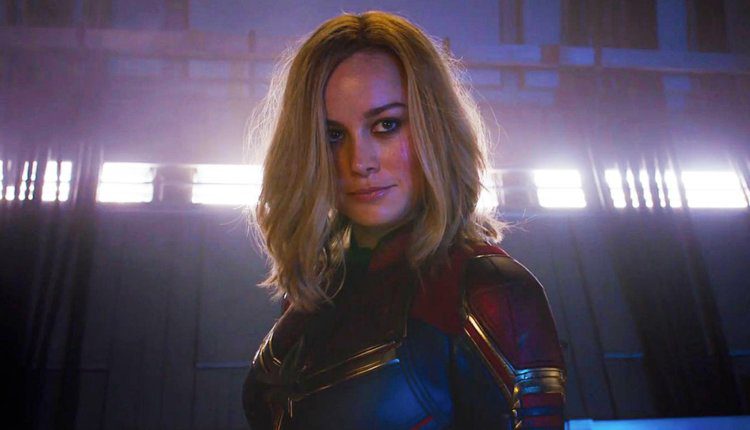The received wisdom in nerd circles is that is that the Marvel cinematic universe movies are all the same and devoid of originality. And sure, the Marvel movies do tend to follow a formula, because it’s one that works! It meshes well with the three-act structure that most movies are built upon and allows the protagonist to go through their ‘hero journey’, completing their character arc satisfyingly.
It is the filmmaking within this structure that makes a movie stand out – or not. Brilliant filmmakers such as Ryan Coogler and Taika Waititi have managed to create beautiful works of art in the form of ‘Black Panther’ and ‘Thor: Ragnarok’, while still holding onto enough pieces of the Marvel formula to satisfy the casual moviegoer and rake in around $1 billion each.
The newest addition to the Marvel cinematic universe is ‘Captain Marvel’, which earns its rightful place among the great Marvel movies (and recently hit $1 billion at the box office). It is the story of Carol Danvers, an alien (Kree) air force pilot stranded on Earth in the 1990s. She wrestles with her identity, and has to cope with figuring out who she really is while being on the run from the Kree’s enemies, the Skrulls, with the help of S.H.I.E.L.D’s Nick Fury and her best friend Maria Rambeau.
While ‘Captain Marvel’ does not necessarily have the flash and instant recognisability in its filmmaking as recent Marvel fare, its directors Anna Boden and Ryan Fleck do a fantastic job of pulling together a movie that was tasked with seamlessly meshing a space opera aesthetic with the mid-90’s. Both of these sensibilities are wound together in a way that manages not to be jarring, except in those moments designed to be that way, where the two worlds collide (sometimes literally). It was a good call by the filmmakers to set the story in a setting where superheroes are yet to become known. It gives Carol a chance to shine in her own right without having to clutter the story with either the presence of other heroes, or justifications for lack thereof.
The loveliest thing about this movie is the character relationships. Carol’s main relationships on Earth are almost entirely with folks of colour, which makes for a welcome change. She bonds with Fury relatively early on in the film over their service and mutual sass. The rapport between the actors, Brie Larson and a cgi-ed Samuel L. Jackson, is wonderful and feels very natural. It is a great building block to Carol’s role in the next Avengers adventure, ‘Endgame’, that she has a personal stake in the fight though her connection to Fury. Also, the fact that Nick Fury reacts to cats the way any cat-lover would, complete with cooing and baby talk, is delightful.
Carol’s strongest connection on Earth, however, is with her air force best friend, Maria Rambeau, and her daughter, Monica, who she adoringly calls Lieutenant Trouble. Carol’s relationship with Maria is her anchor, and the main thing that brings her back when she’s on shaky ground regarding her own identity. Carol’s backstory with little Monica also strongly suggests that she played a co-parenting role in her life(listen internet, if there is not an abundance of fan works depicting Carol and Maria sappily raising a kid together, I will be sorely disappointed).
The thing I enjoy the most about this most recent string of Marvel movies, even more than their masterful execution, is that the filmmakers were given enough freedom to put forward actual themes and messages behind the special-effects filled action scenes.
‘Thor: Ragnarok?’ Surprise, it’s about a colonial empire-building and how a nation built on violence and bones of the oppressed doesn’t deserve to exist! ‘Black Panther’? Surprise, afro-futurist philosophies manifest, along with discussions of pan-africanism and people’s responsibility towards their diasporas when they are marginalised!
So, does ‘Captain Marvel’ have a covert theme smuggled underneath its super heroic veneer? Not that it necessarily needed one – being the first Marvel movie spearheaded by a solo female character would have been accomplishment enough, But yes, captain Marvel does have something more to say. The surprise theme this time is about challenging colonialist brainwashing and narratives, intertwined with Carol’s journey to reconcile her past, while discovering herself and her powers. The story also touches on the repercussions of colonialist mentalities, and the refugees that result from them. Refreshing, also, is the way that refugees in the movie are explicitly and unquestionably treated as people deserving of help and a home. As much as equating the struggles of marginalised communities to fictional groups is a hard thing to do, in this case I felt that it was handled with a skilful touch.
The denouement of Carol’s character arc felt very apt for her character. It has been criticised for not being a satisfactory climax for a superhero’s journey, but personally, I adored the fact that the film culminates to Carol recognising that she doesn’t have anything to prove to any (male) authority figures in her life. It feels like a very deliberate choice, a message for both the characters and the audience: ‘Captain Marvel’ is here to stay, and she doesn’t care what you have to say about it.
Captain Marvel is currently showing at Dendy Cinemas in the Canberra Centre.
We acknowledge the Ngunnawal and Ngambri people, who are the Traditional Custodians of the land on which Woroni, Woroni Radio and Woroni TV are created, edited, published, printed and distributed. We pay our respects to Elders past and present. We acknowledge that the name Woroni was taken from the Wadi Wadi Nation without permission, and we are striving to do better for future reconciliation.
